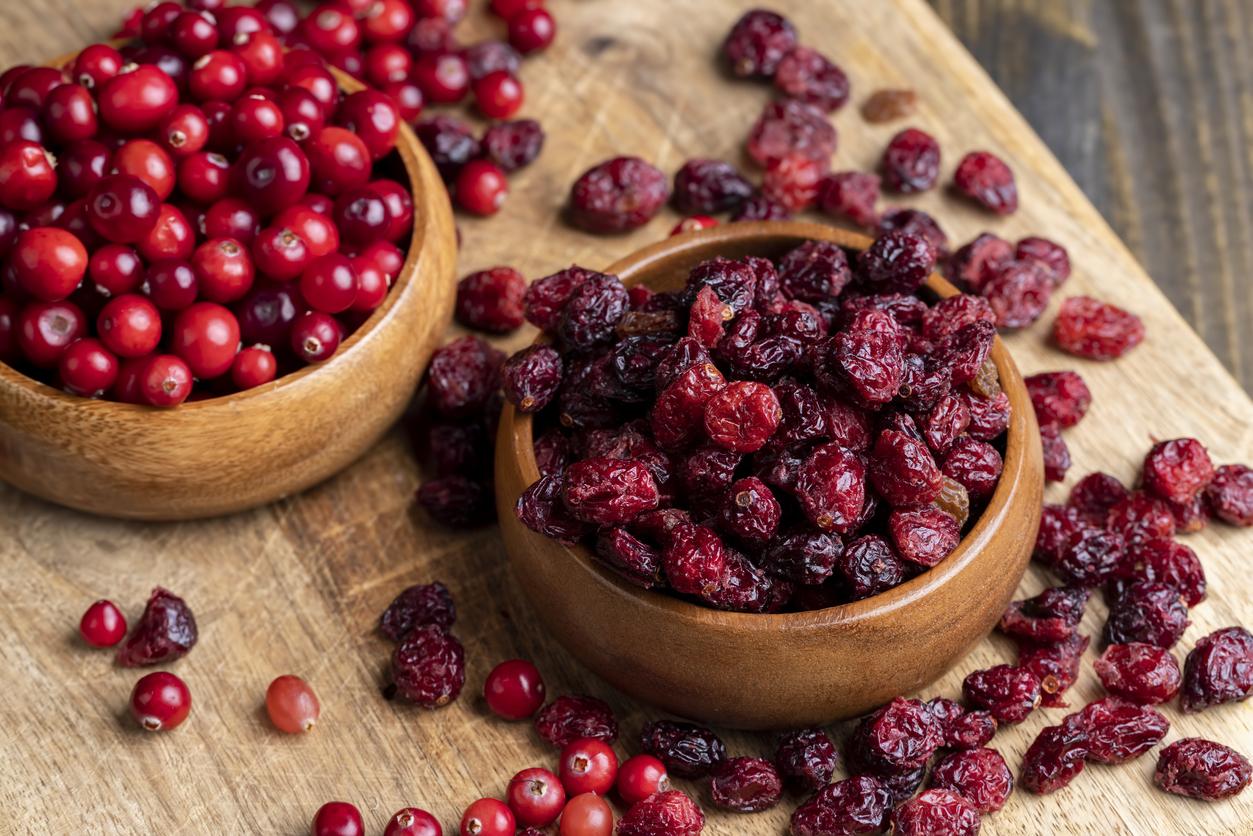According to a new study, eating cranberries is good for gut health because it increases good bacteria.

- According to a new study, consuming cranberry extracts can have a significant impact on gut health.
- This effect is visible after four days of consumption.
- Researchers observed an increase in good intestinal bacteria and a reduction in those harmful to the microbiota.
Eating cranberry extracts for just four days can lead to a significant increase in the levels of good gut bacteria, while reducing harmful ones, according to a new study published in the journal npj Biofilms and Microbiomes.
Cranberry extracts to combat the harmful effects of the Western diet
During their work, scientists from Laval University, in Canada, used a prebiotic called “Prebiocran” which contains the polyphenols and fibers present in cranberries. Twenty-eight volunteers took this prebiotic for four days. Before and during taking, the scientists studied their stool samples to analyze changes in their gut microbiomes. Results: good intestinal bacteria increased significantly in just four days and the level of harmful bacteria decreased.
According to researchers, eating cranberry extracts could help counteract the harmful effects of the Western diet. “This diet alters the microbiota, causes inflammation of the mucosa and compromises the integrity of the intestinal barrier, which plays a crucial role in protecting the body against bacteria present in the intestine, indicates Yves Desjardins, professor at Laval University. The alteration of the intestinal barrier allows the passage of lipopolysaccharides (LPS) from the intestinal microbiota, called metabolic endotoxemia, and constitutes a crucial factor in the appearance and progression of inflammation and metabolic diseases. The constant inflammation that results from the presence of LPS in the body can lead to several chronic diseases, including diabetes and cardiovascular disease.“
Higher levels of butyrate-producing bacteria
Another lesson from this study: cranberry extract stimulated the production of butyrate, a short-chain fatty acid with anti-inflammatory effects and contributing to the maintenance of a healthy intestinal barrier. Higher levels of butyrate-producing bacteria are associated with a reduced risk of inflammatory bowel disease and certain cancers.

















